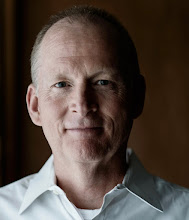The moment remains vivid in my mind’s eye. My wife, Susan, and I are sitting in a youth minister friend’s living room on a gorgeous spring day. The windows are open wide, and sunshine is streaming in through the gauzy curtains that wafted in the breeze. Three of my youth ministry comrades and I, along with our wives, were engrossed in rich conversation with “Big Don” Williams… a mentor, friend and a member of the first generation of youth ministers within Churches of Christ.
My friends, our wives and I were all in our early twenties in that moment. And as “Big Don” painted a picture of the possibilities for reaching a generation of students for Jesus, my heart pounded… this is why I had chosen to become a minister with a local church. I had responded to the challenge of “If you feel you can do anything other than ministry with a local church, you should do it because ministry is hard” with a deeply felt sense of calling to serve a local church as a minister. That has changed, though.
None of that group of friends I sat with that fine spring day remain in a traditional ministry role with a local church. Nor do I. And “Big Don” Williams died several years ago. Things changed.
I want to make clear that I am more committed to the possibilities of Jesus’ church than I have ever been. I deeply love God, Jesus, and the Spirit. I am enjoying ministry and feel a passion for ministry that I haven’t felt in years. I’m just not serving as a minister on the staff of a local church.
What changed? Did I get old, crotchety, jaded and cynical? Did I attend one too many elders’ meeting? I don’t think so… or at least I hope not (as far as old, crotchety, jaded and cynical).
What changed for me is that I grew weary of “doing the ministry of doing church.” Over a span of thirty plus years, that twenty-something version of me learned how to “do church.” And what “doing church” appeared more-and-more to be was less-and-less of what I had felt called to do all those years ago. For me, the work of a minister had become “don’t rock the boat, don’t disturb the status-quo, keep the church folk happy.” And the more I pushed against this reality, the more frustrated I became… and the more frustrating I became to many of the elders I worked for.
Therefore, while I no longer serve a local church as a minister… I am experiencing vibrancy in ministry that I haven’t felt in years. I’m re-thinking what it means to be the church. I’ve grown increasingly uncomfortable with the “building-centric” model of church that I supported for over three decades of my ministerial life. I’m seeing church much more as a living, breathing expression of Jesus in our communities and our world, and much less of a place where Christians go once or twice a week to “do church.”
However, there’s not any sense on my part that I wasted over thirty years of my life serving local churches as a minister. All of my experiences, good and bad, were formative and have prepared me for my current season of ministry. And my brothers and sisters in Jesus, the people I did ministry alongside (and most of whom have day jobs as electrical engineers, firefighters, teachers, architects, and plumbers), have taught me what Christ-like love, grace, and the Gospel looks like. I’m continuing to learn we are most like Jesus when we care for the lost, the last, and the least. There are no regrets, no “I wish I could do things over differently,” but a deeply held conviction that God is using all of my first-half of life experiences in preparing me for this second-half of my life and a new expression of ministry.
That new expression of ministry for me has taken the form of serving as the executive director of a start-up non-profit called Rwanda Children (www.rwandachildren.org). Rwanda Children’s mission is to provide housing, food, family and hope to at-risk kids in Rwanda. I’ve held malnourished children in my arms, I’ve had to turn away children that parents pleaded with me to take, I’ve wept at genocide memorials and heard first-person accounts of the atrocities of the Rwandan genocide that killed over one million people, while witnessing God’s power in bringing reconciliation, redemption and hope to a left-for-dead people and country. It is hard. It has stretched me. It frustrates me due to my on-going struggle to control things that I can’t control. I love this ministry. It has refreshed my minister’s heart and spirit. I praise God for His faithfulness.
Additionally, I am in the midst of exciting conversations about what new expressions of church and mission might look like in local communities. Friends in Nashville have begun two missional coffeehouses, and have planted non-traditional churches in those coffeehouses. Several of us in the city where I currently live are in discussion with the folks in Nashville about the possibility of our implementing their model in our city. These conversations are exciting
What’s ahead of me ministry-wise? I don’t really know. I’m optimistic about the future of the church and for God’s expression of ministry through a priesthood of all believers. These God-possibilities wash over me like a fresh breeze and warming sunshine on a gorgeous spring day.







